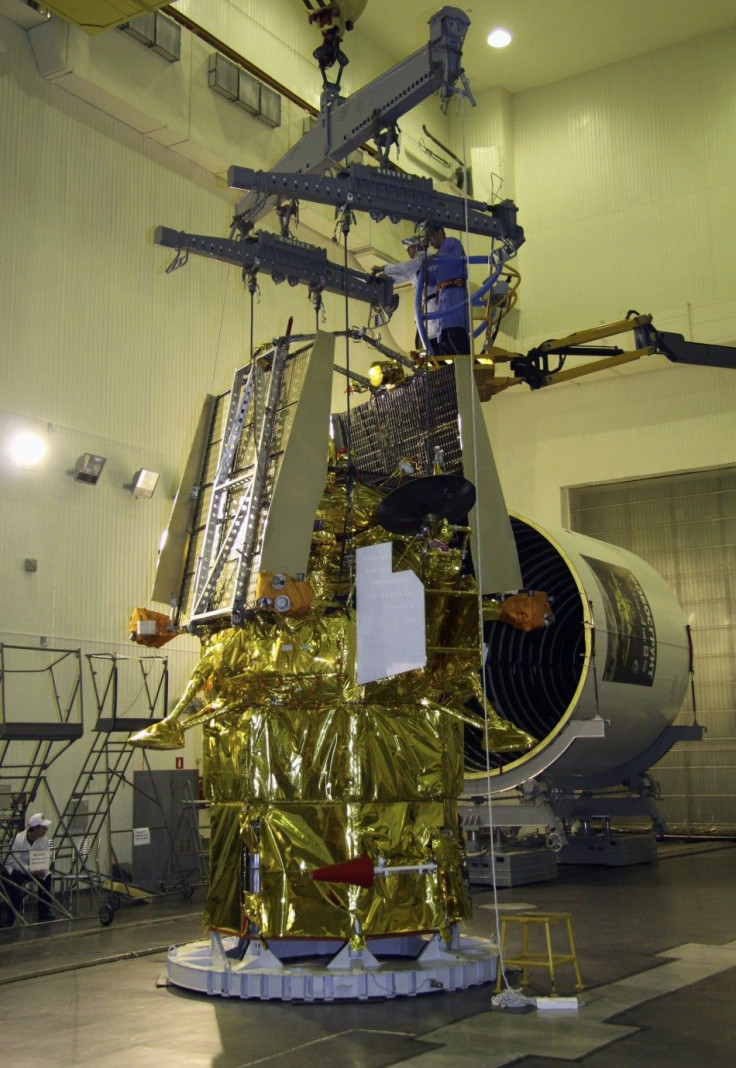Russian Spacecraft with Mission to Mars in Deep Trouble

Phobos-Grunt, Russia's space probe to the Martian moon Phobos, is stuck in orbit since its launch on Wednesday. Officials cite equipment failure as the problem, raising new fears that the probe could release toxic fuel as it falls back towards earth, unless engineers are able to steer it back on track.
From the orbits we're seeing from the U.S. Space Surveillance Network, it's going to be a couple weeks before it comes in, said NASA Chief Debris Scientist Nicholas Johnson, The Associated Press reported. It's not going to be that immediate.
Phobos-Grunt was successfully launched from Kazakhstan by a Zenit-2 booster just after midnight Moscow time. It separated from its booster about 11 minutes later. Then, it was supposed to fire its engines twice in order to navigate its path toward the Martian moon, but it never did.
Engineers have only three days to correct the problem. After that, the probe's batteries will drain and the mission will be a failure. However, the Russian space agency said that they also have enough power to circle the earth for two weeks.
We have three days while the batteries are still working, said Roscosmos chief Vladimir Popovkin, the National Post reported.. I would not say it's a failure. It's a non-standard situation, but it is a working situation.
The plan was for the probe to orbit around Mars, land on Phobos, scoop up rocks and soil clusters and bring the samples back to earth for study.
James Oberg, a NASA veteran who has written extensively on the Russian space program, believes it is still possible for Russia to complete their mission.
This is not an impossible challenge, Oberg said in an email to The Associated Press. Nothing irreversibly bad has happened, the full propellant load is still available, and short-term 'stay healthy' maneuvers can be performed like deploying the craft's solar panels to boost its power.
However, Oberg also warned if the spacecraft crashes, there could be significantly more damage than the Russian spacecraft that crashed in 1996 or the American spy satellite that was shot down by missiles in order to prevent toxic fuel from falling to the ground.
After two decades of cancelled missions, Russia hoped the latest endeavor will mark its return to large-scale space operations. If successful, this mission will be the first time since the fall of the Soviet Union that Russia has completed a space mission.
Mars has always been an inhospitable planet for Russia. The United States has had much more success there, said Maxim Martynov, the project's chief designer at NPO Lavochkin, the major Russian aerospace company that made the Phobos-Grunt, Fox News reported.
Since the 1960s, Russia has had many problems with Mars. If the probe is unable to return to its course, it will mark Russia's 19th failed mission, or only partially successful mission, in its journey to Mars and its Moons.
© Copyright IBTimes 2024. All rights reserved.





















